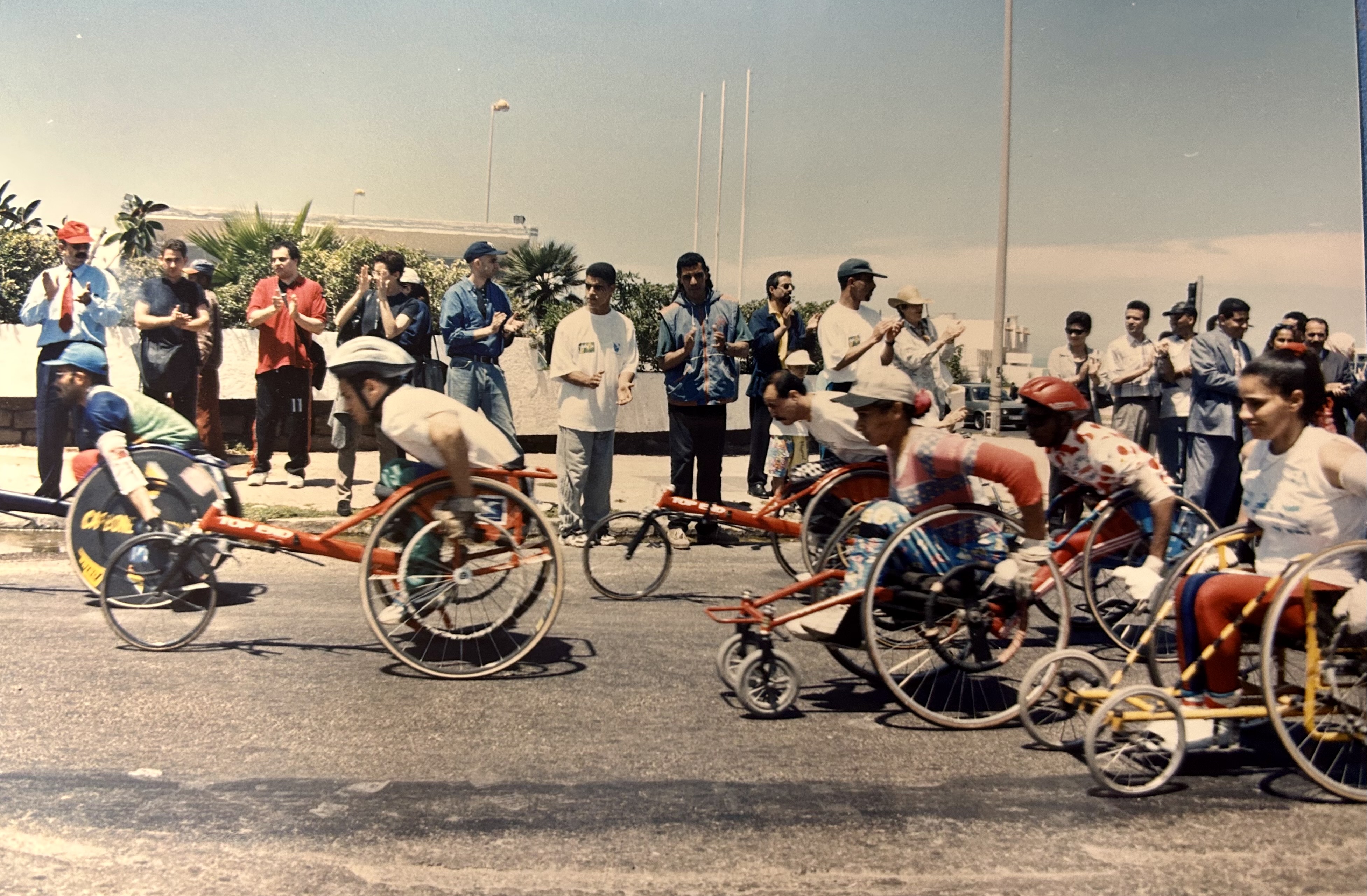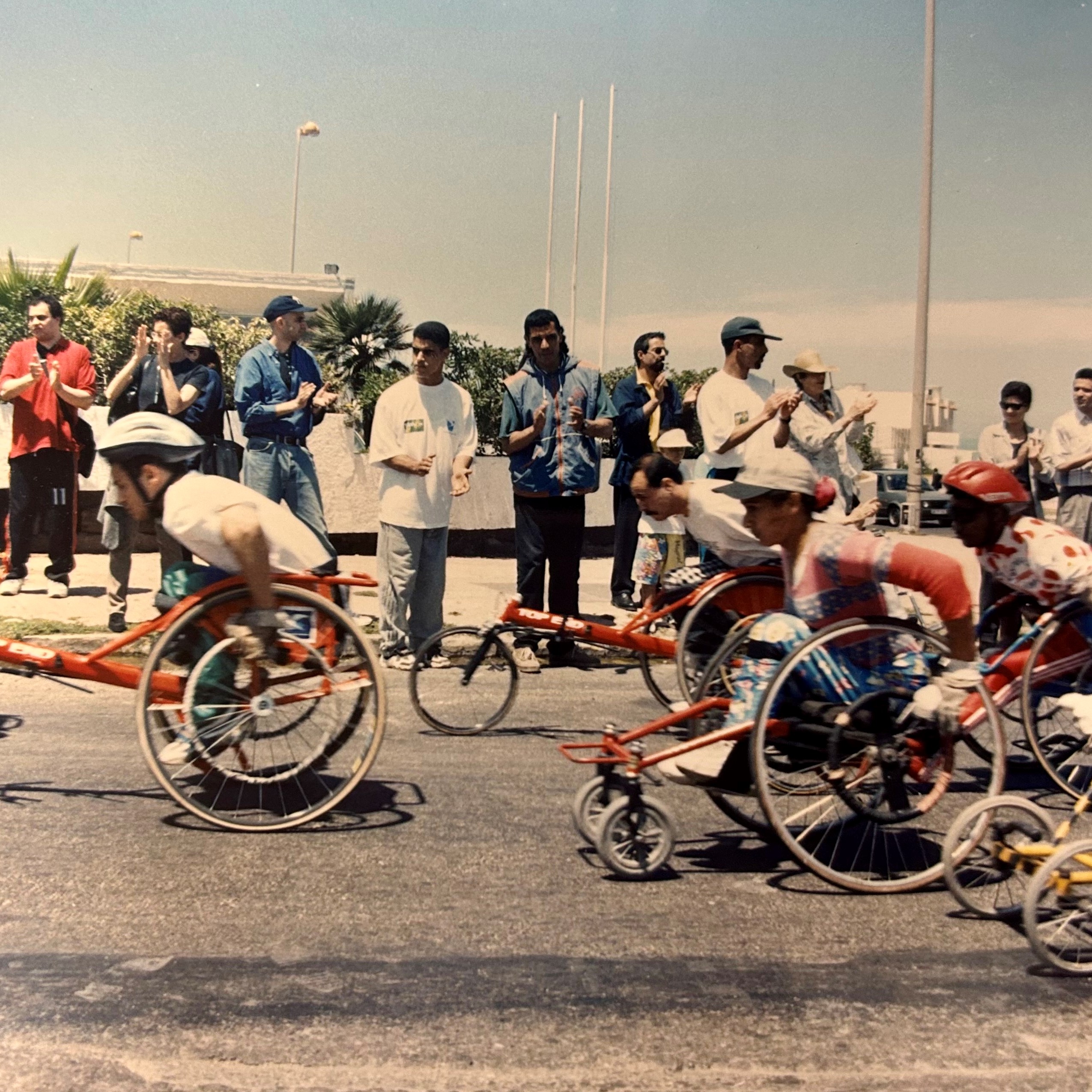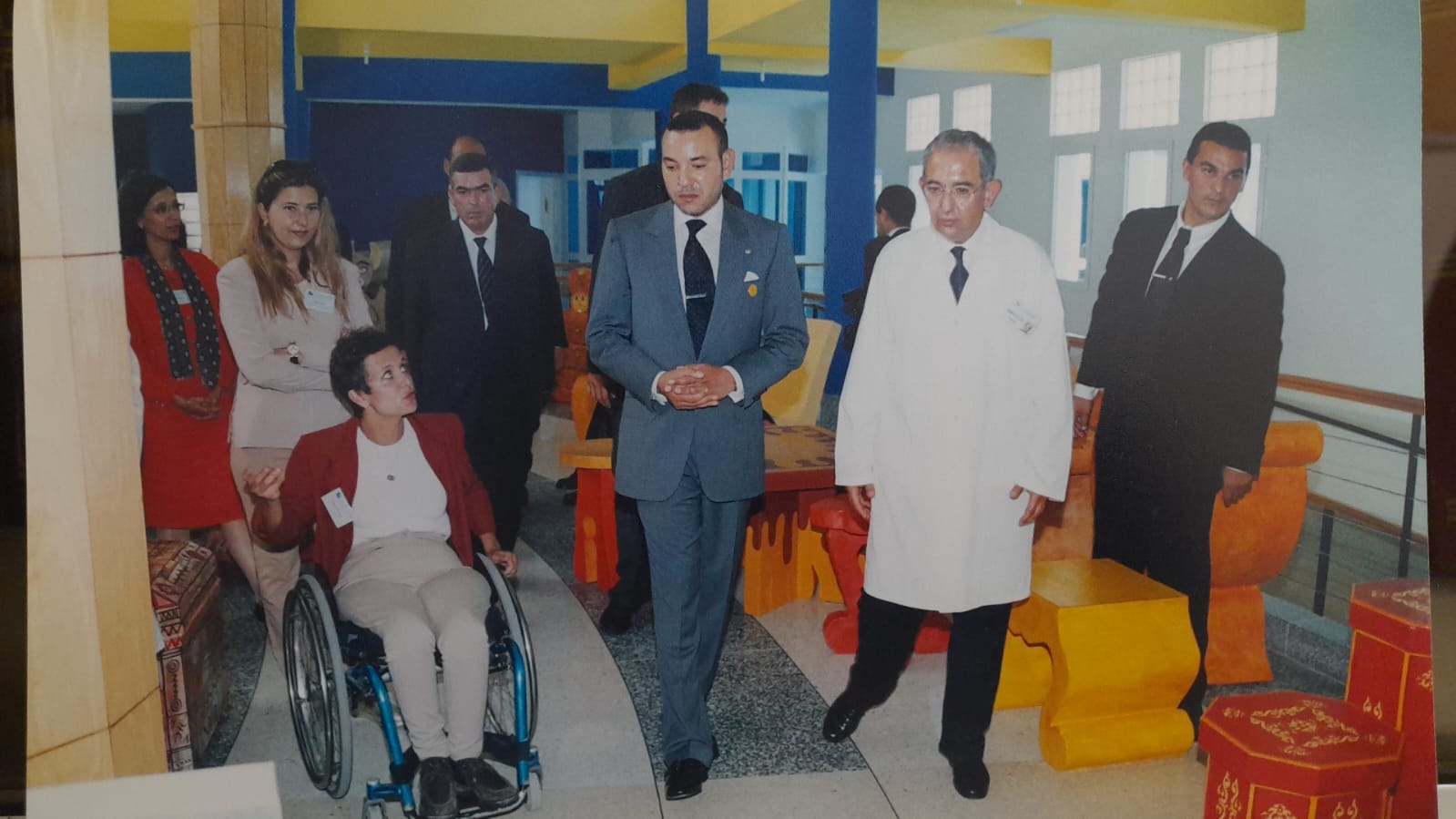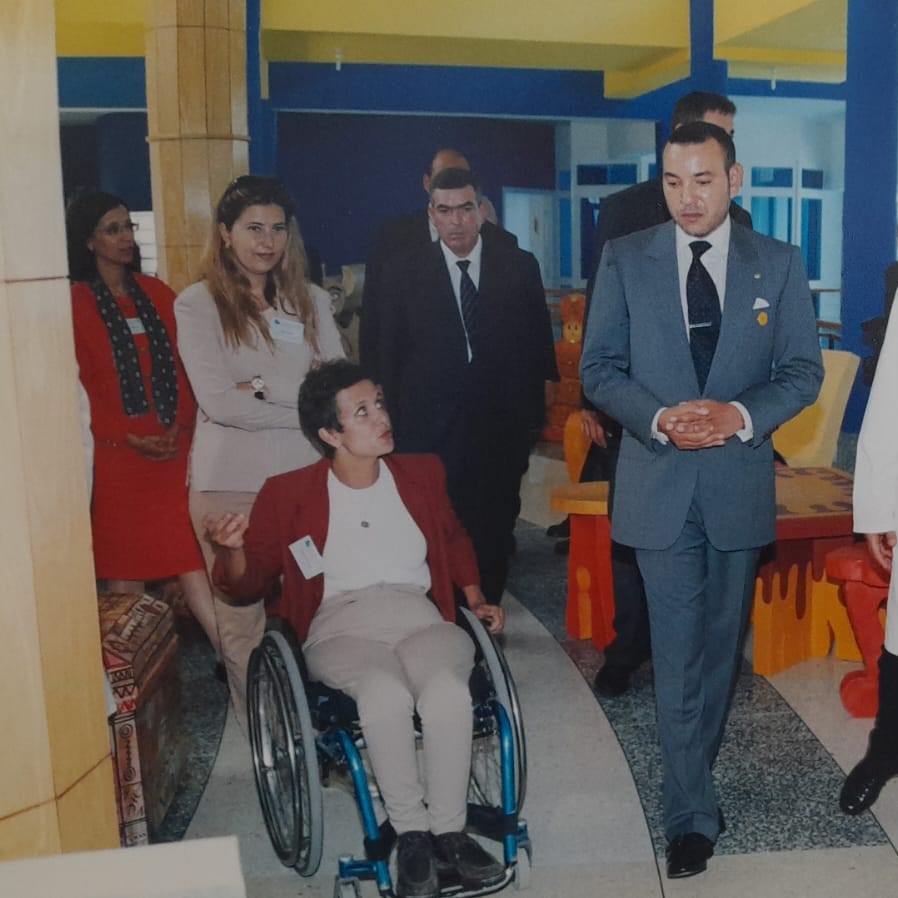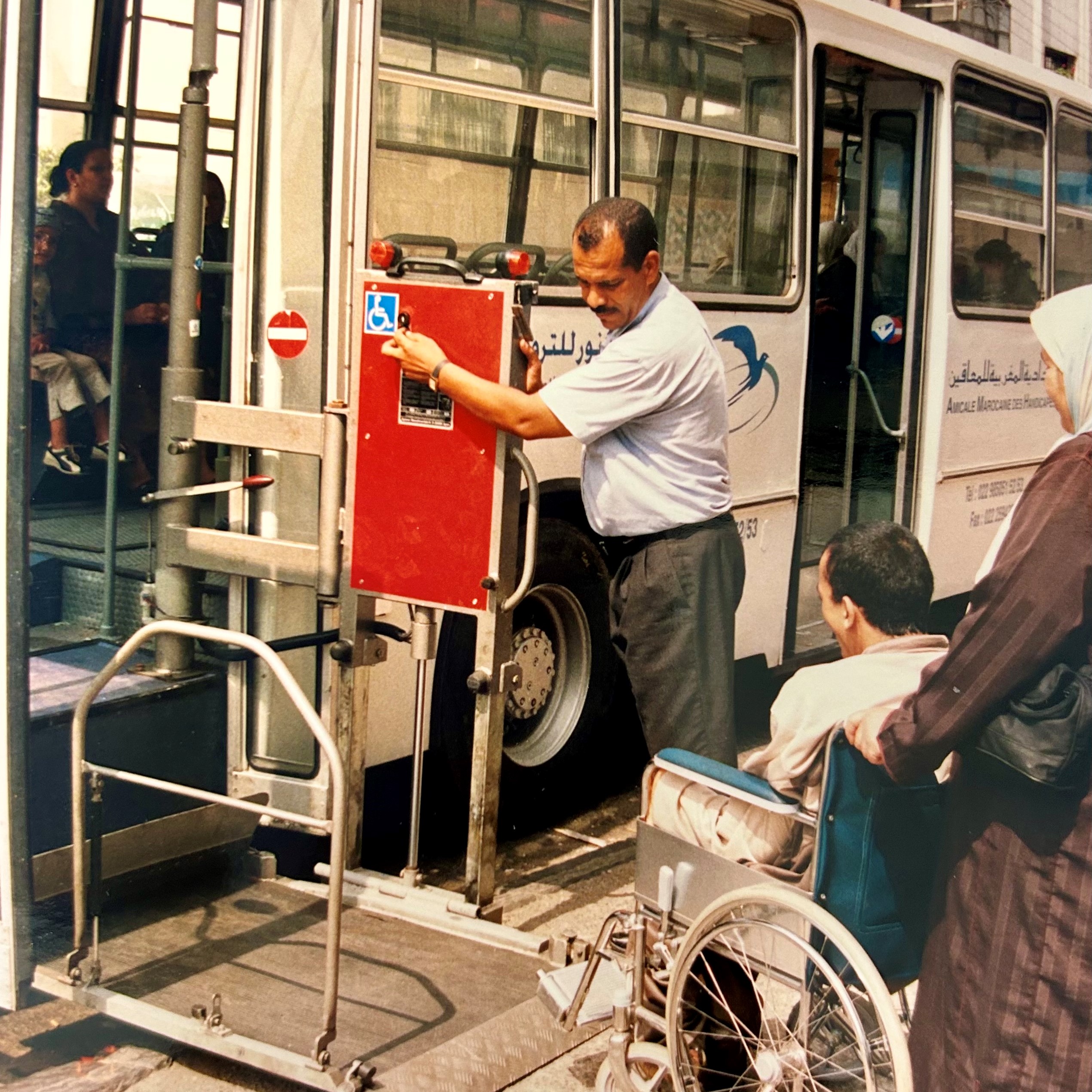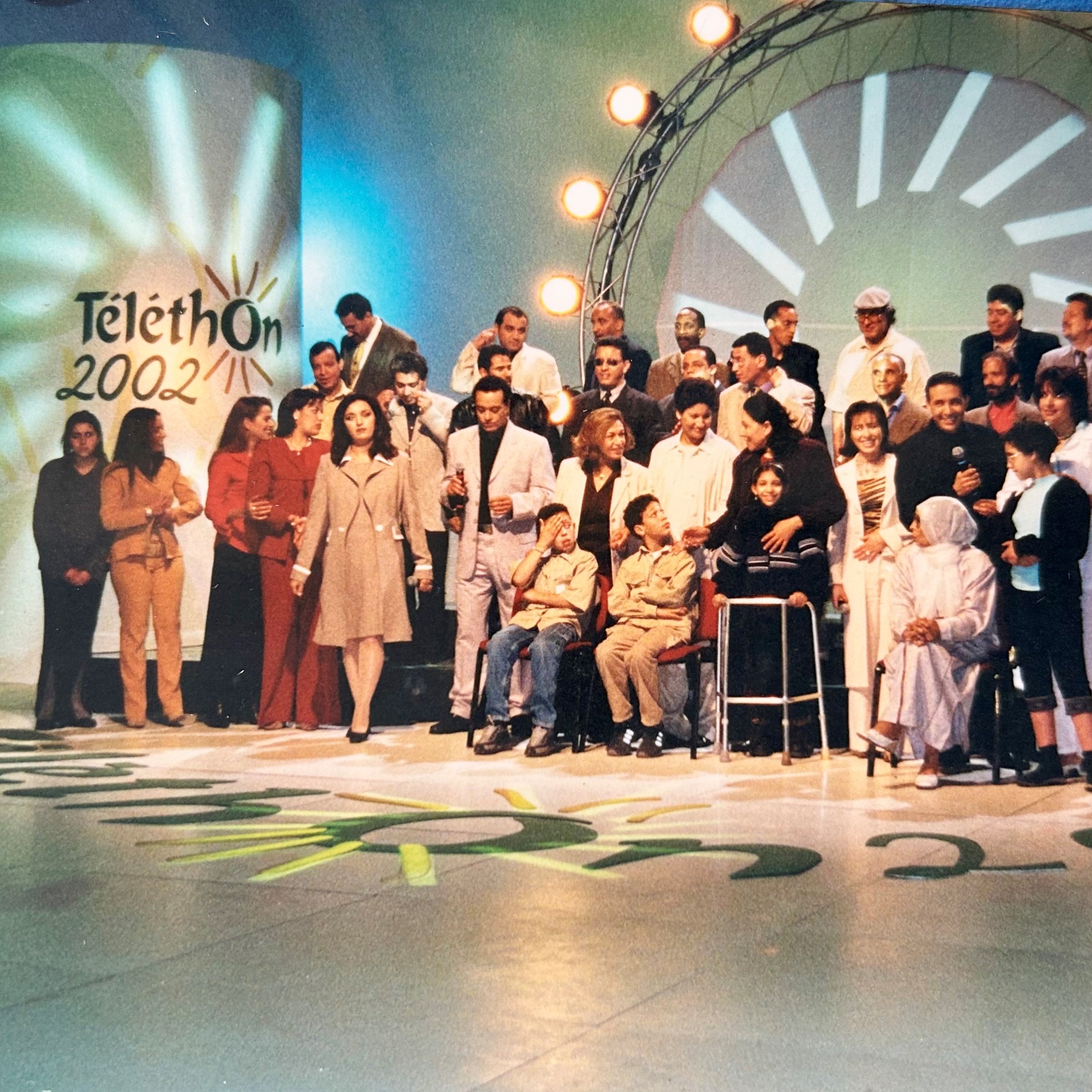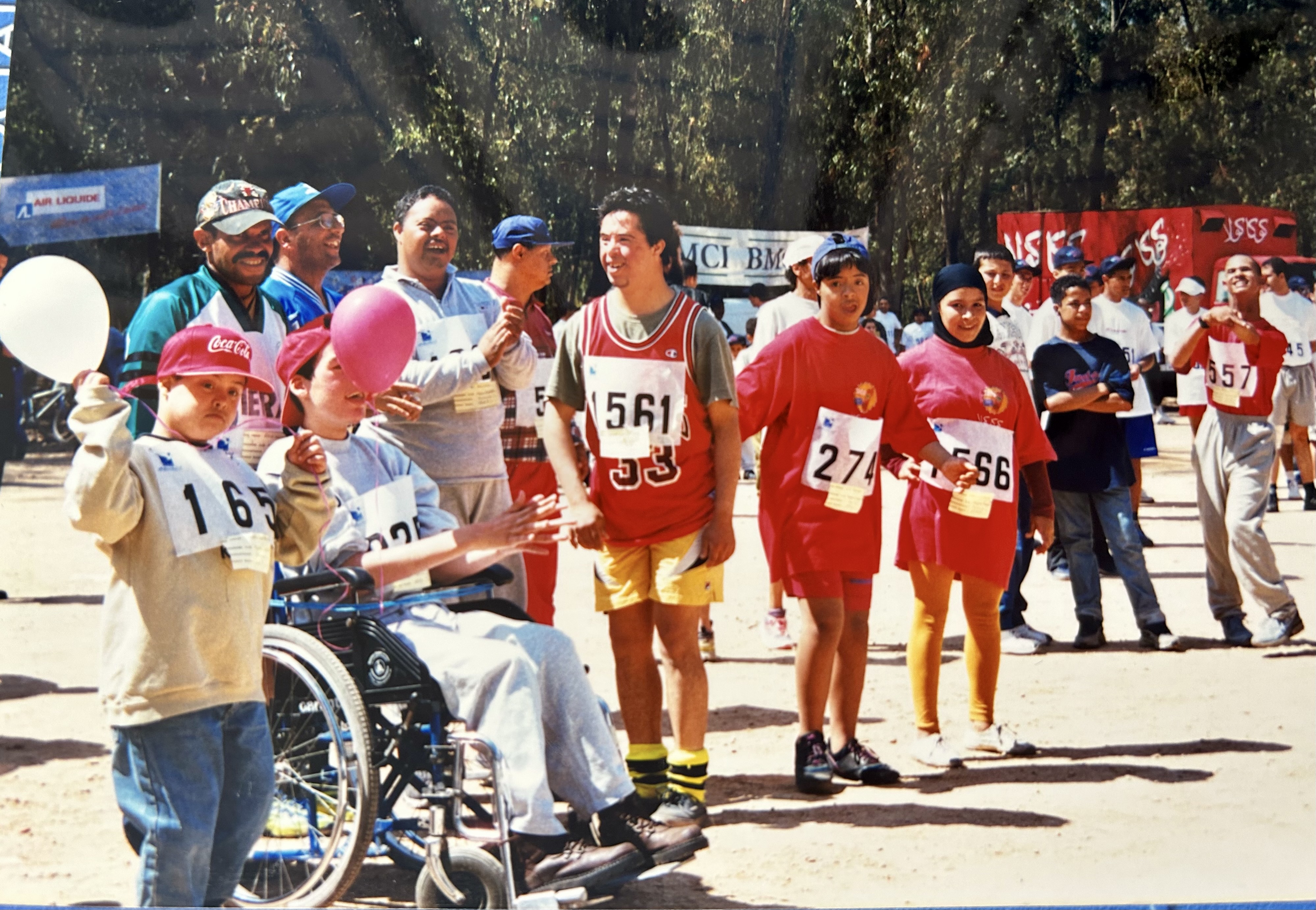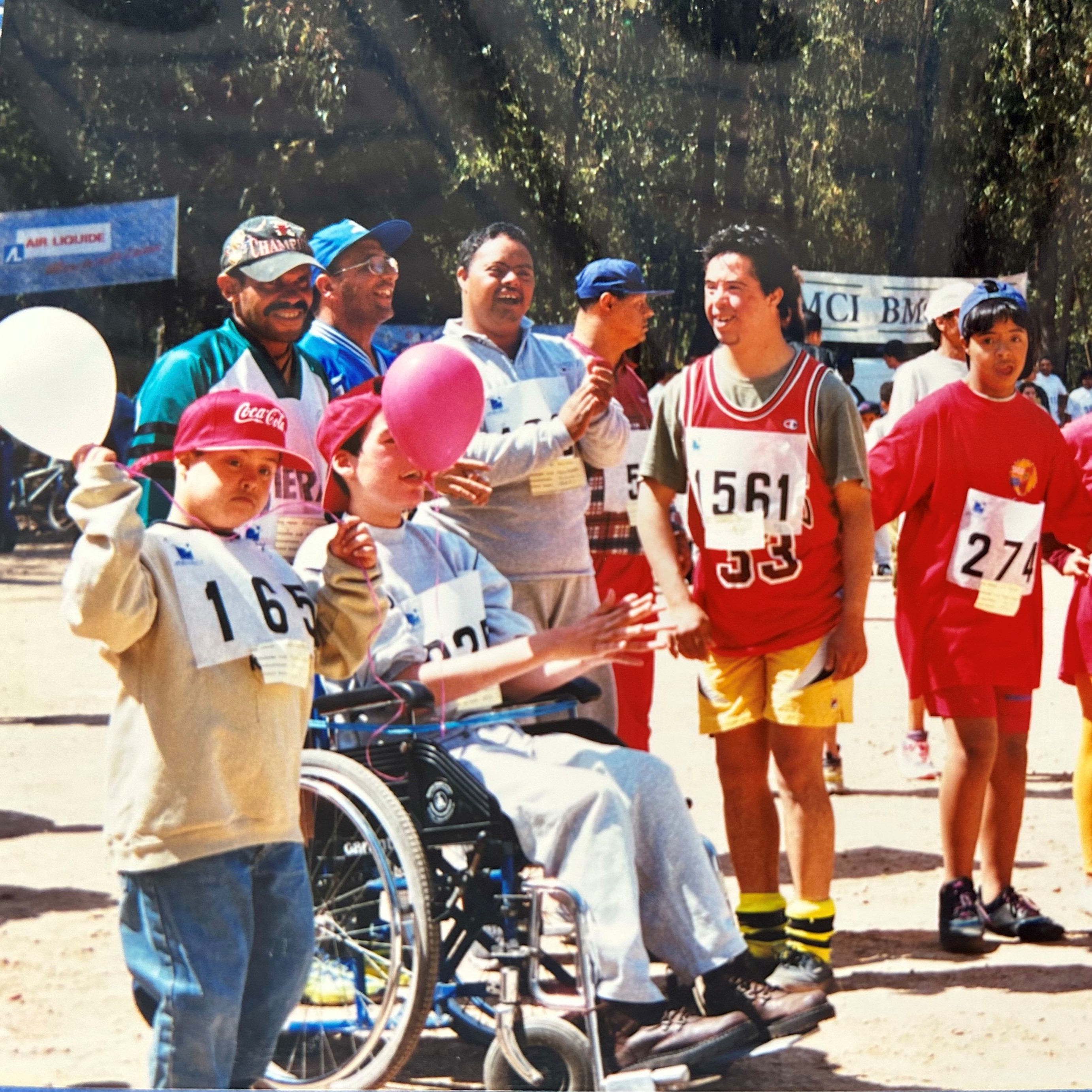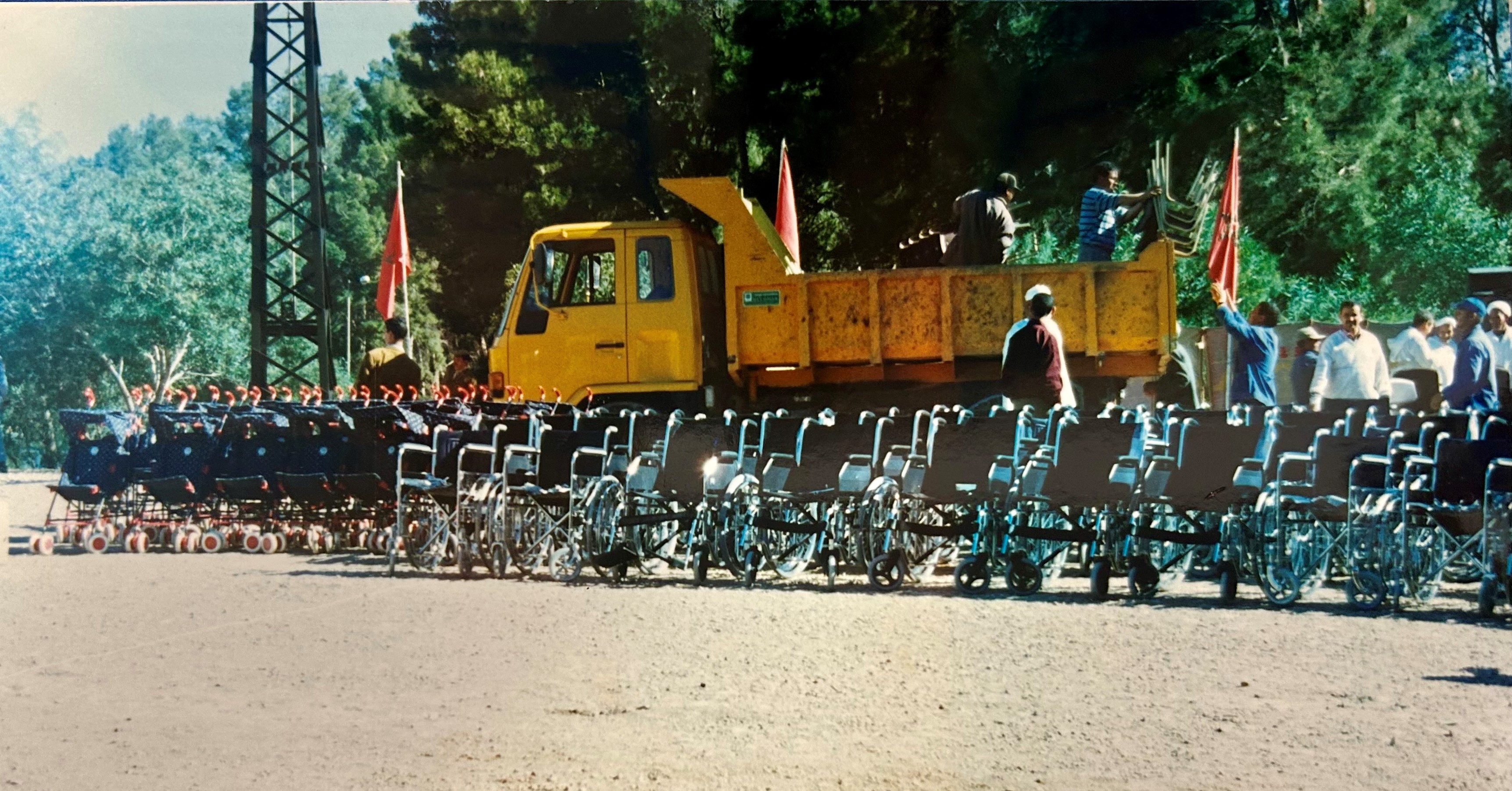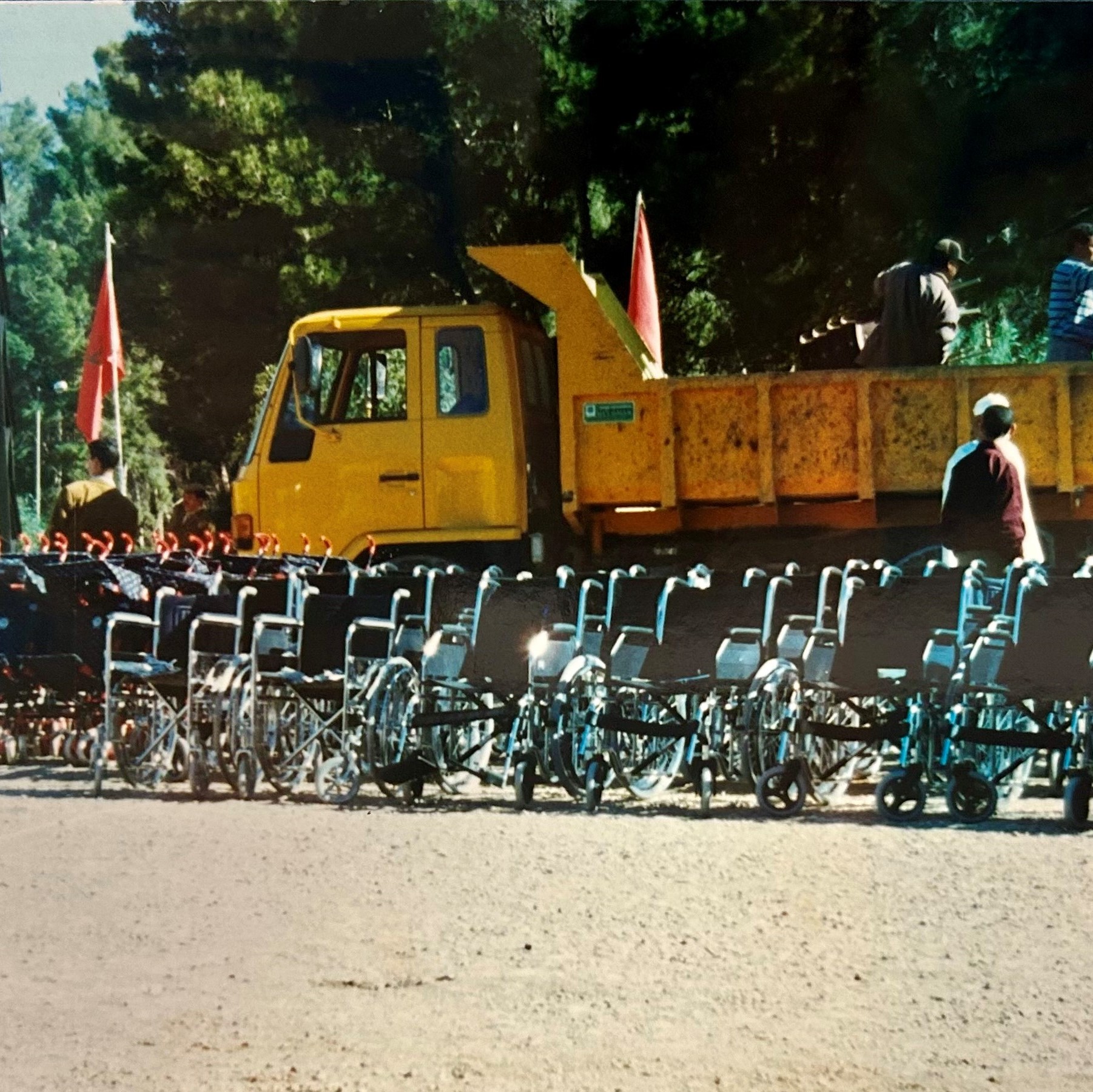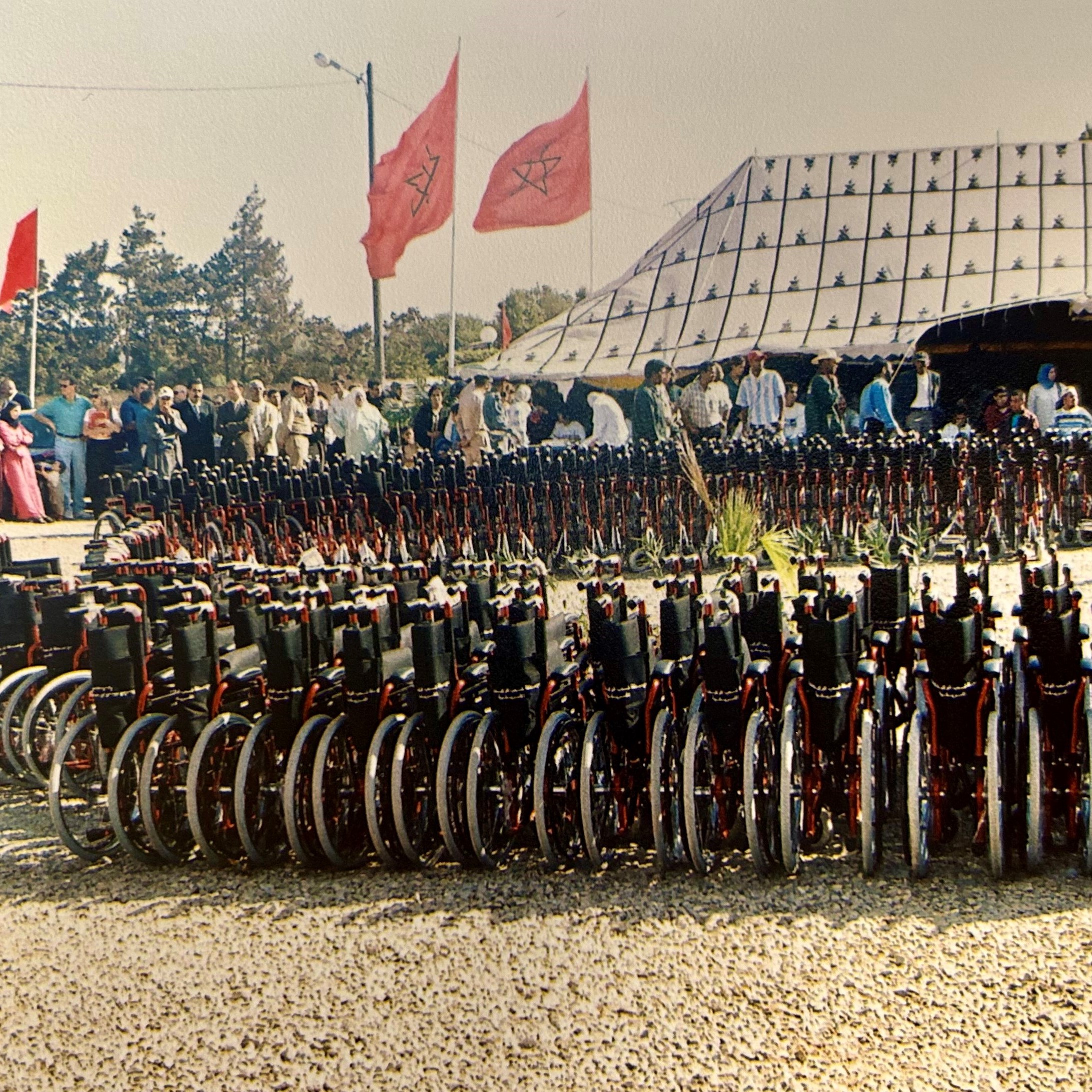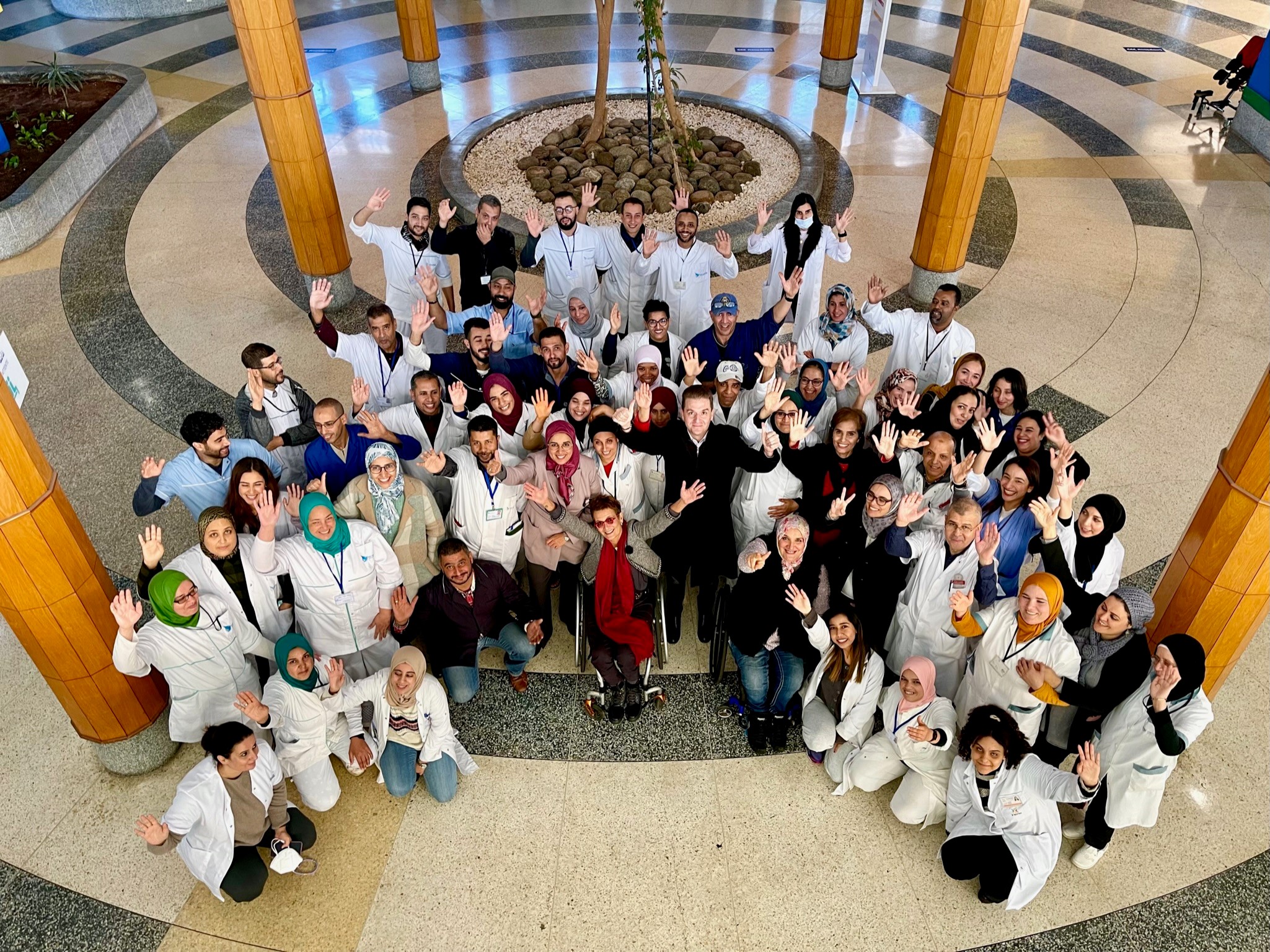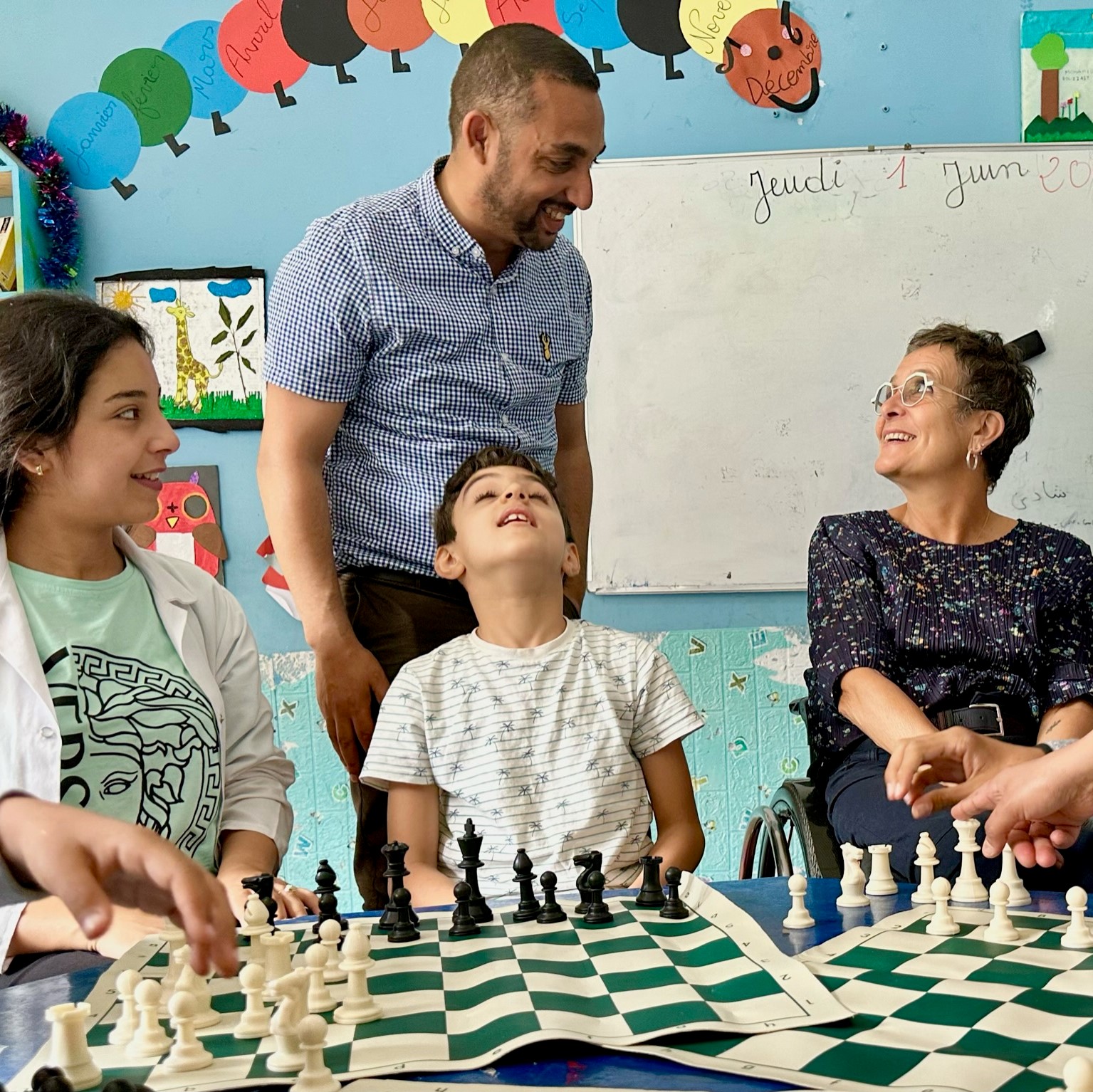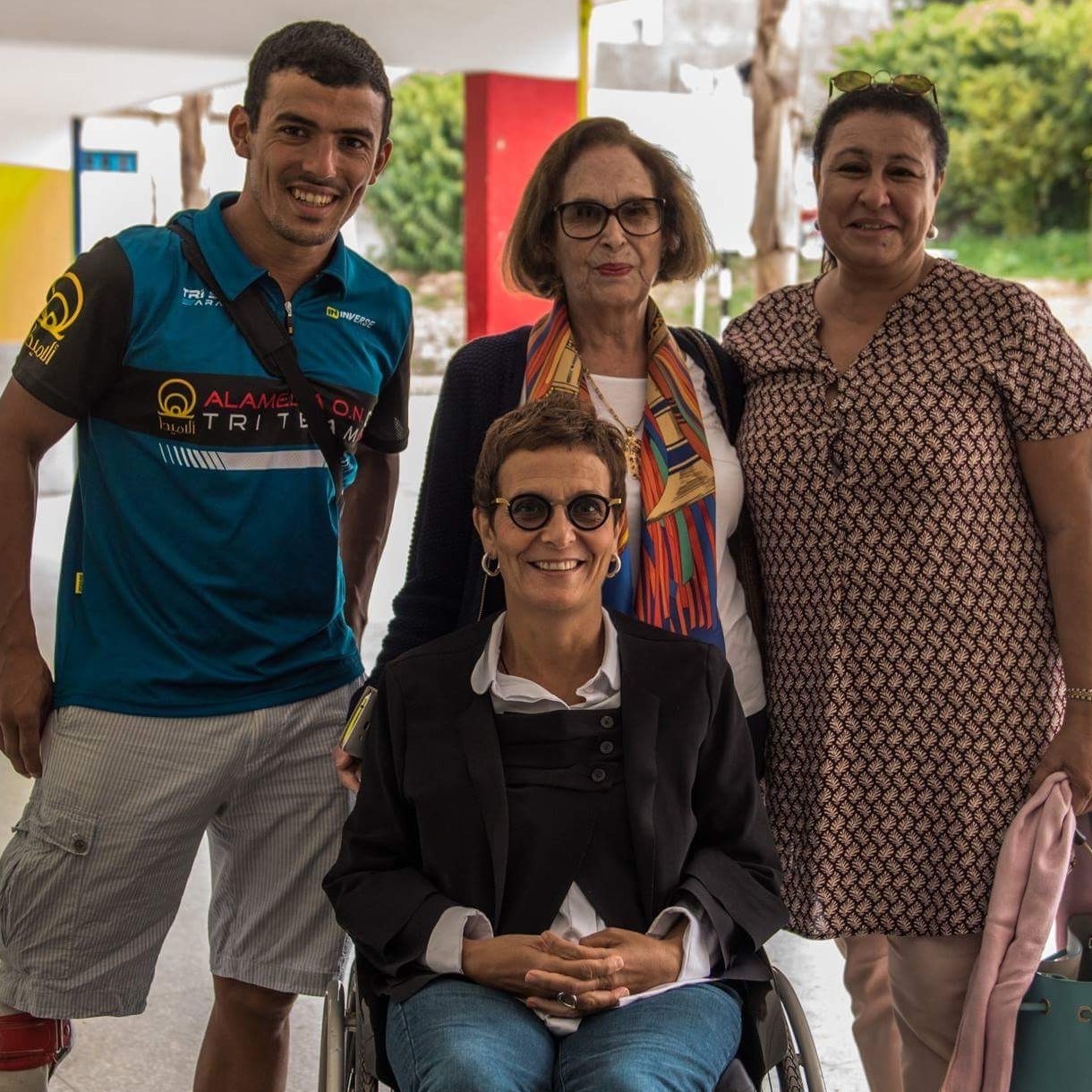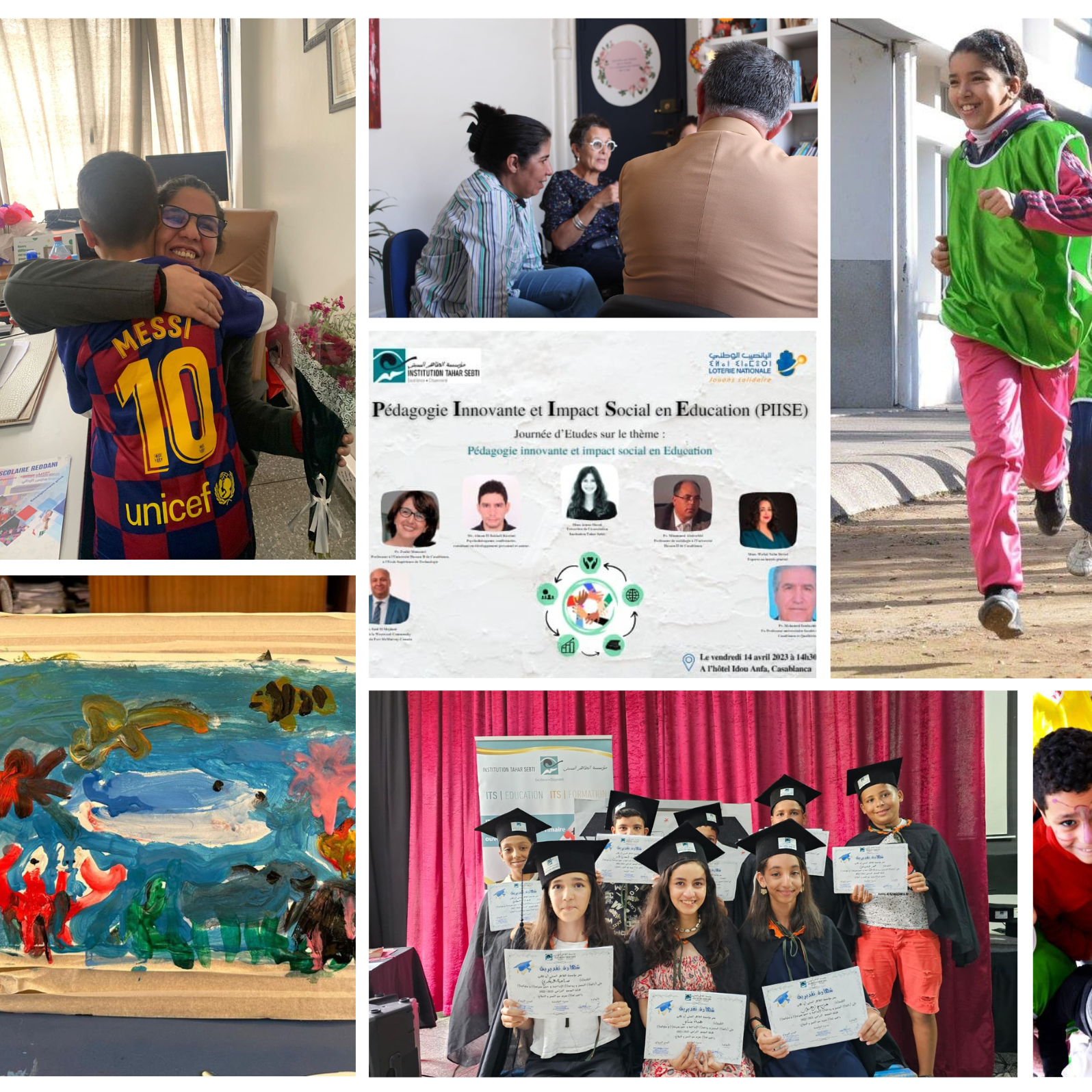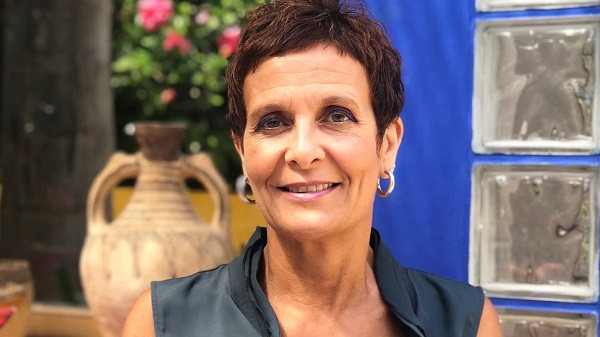
- President, AMH Group & Institution Tahar Sebti (Healthcare, Education)
“I think that everybody can be part of the change. Adversity does not define you, but the way you react to it does.”
Summary
Amina Laraki Slaoui is the President of AMH Group (Amicale Marocaine des Handicapés), a non-profit organization based in Casablanca, Morocco that specializes in responding to the needs of people with disabilities. Established in 1992, AMH provides access to healthcare and education for vulnerable groups including the elderly. The Group has also campaigned to enact change towards the social and economic inclusion of people with disabilities in Morocco.
Slaoui begins the interview by discussing her early life and education. As the daughter of diplomats, she relates how her family’s experiences in countries such as Spain and the U.S. provided her with exposure to different cultures, shaping her mindset. Her family was well-known in Morocco and her father, Ahmed Laraki, served as the Prime Minister between 1969 and 1971. Slaoui then moved to Paris, France to pursue a Master’s in private international law and political science from the Université Paris Panthéon-Assas. She also studied international affairs for some time at Sciences Po, Paris. In 1984, she returned to Morocco, worked in a bank for four years and founded a communications agency named Imago.
In 1992, Slaoui was on vacation cycling with her husband in Costa Rica when a fall from a bridge left her paraplegic. She recalls how it took a search by plane and eight hours for her to reach the nearest hospital in San José. Slaoui started rehabilitation first at the Mayo Clinic in the U.S. before moving to the Hôpital de Garches in France. She underscores how the difficulties of rehabilitation were not only physical but psychological, calling this period of time her “reconstruction.”
Following six months of rehabilitation, Slaoui returned to Morocco. Upon her return, she observed a lack of accessibility and services for people with disabilities which led her to “turn my personal battle into a beacon of hope for the people with disabilities who were marginalized, forgotten or not seen.” Slaoui joined AMH Group in 1993 after meeting Mohamed El Khadiri, one of the organization’s founders. Together, they organized a telethon (a televised fundraising event) in Casablanca named the “marathon of hope” to raise awareness about the situation for people with disabilities. AMH Group continued to host fundraising events to build a rehabilitation center, which became the Noor Center for Physical and Functional Rehabilitation.
Emphasizing the benefits of the AMH Group’s holistic approach, Slaoui explains how patients receive not just healthcare but also support with schooling, employment and housing. She highlights the importance of such a multifaceted approach, describing it as a “way to accompany the person in her life.” She also discusses an innovative cost subsidization model, whereby revenue from wealthier patients supports the medical care of those who normally could not afford it. This allowed the organization to “provide care to one-third of the patients who are less privileged.”
Slaoui proceeds in the interview by addressing her involvement in Morocco’s education sector through her role as President of the Institution Tahar Sebti in Casablanca as of 2013. Founded by her aunt Zhor Sebti in 1956, the school serves as a model for its development of accessible facilities and teacher training which has allowed for the integration of students with disabilities. The school has also focused on providing extracurricular activities for students. She explains how she would like to implement the extracurricular programs they developed in other schools throughout Morocco.
Looking back on the policy impact that AMH Group has had over the last 30 years, Slaoui recalls how the Group fought for the implementation of laws to support the rights of people with disabilities. However, she contends that a persistent problem relates to the enforcement of laws in order to provide basic needs. Furthermore, she discusses how a law regulating NGOs and associations in Morocco does not permit the president of the board to be paid. This fact, as she explains, has made it difficult to find a successor for her position.
Slaoui concludes the interview by expressing gratitude for her family members, explaining how they have supported her both with AMH Group and Institution Tahar Sebti. She outlines her plans for the future, stating how she hopes to find a successor because one “cannot associate a name with an NGO.” In addition, she hopes for further change towards the expansion of rights and inclusion for people with disabilities, stating that “my dream is to live in a world where disability is not an exception but part of our beautiful diversity. I dream for a world that embraces us, and doesn’t reject us, because we have so many things to offer.”
Video Clips by Topic
Facing Adversity
Amina Laraki Slaoui, President of AMH Group, recalls the life-changing accident which left her paraplegic and explains how she observed a lack of accessibility for people with disabilities upon her return to Morocco.
Start-up
Amina Laraki Slaoui, President of AMH Group, describes the organization's early days and how she coordinated a series of fundraisers to raise the capital needed to build a rehabilitation center (Noor Center for Physical and Functional Rehabilitation).
Art & Music
Amina Laraki Slaoui, President of AMH Group, emphasizes the importance of music as a way to encourage joy and resilience for patients in their rehabilitation center as well as children at their school, the Institution Tahar Sebti.
Additional Resources
- AMH Group Website
- Institution Tahar Sebti Website
- Amina Laraki Slaoui. "Amina Slaoui, A Pioneering Social Entrepreneurship Leader in Morocco" Lionesses of Africa. November 21, 2021.
- Alfonso Daniels. "The Battle for Better Disability Rehab in North Africa" BBC News. October 1, 2018.
- Amina Laraki Slaoui. "Social Entrepreneur of the Year Award (2015)" Schwab Foundation.
- Amina Laraki Slaoui. "Award for Humanitarian and Civic Services (2014)" Takreem Foundation.
- Amina Laraki Slaoui. "Confronting our Limitations: Amina Slaoui at TEDxCasablanca" TEDx Talks. December 20, 2011.
Interview Citation Format
Interview with Amina Laraki Slaoui, interviewed by Geoffrey Jones, Marrakech, Morocco and Boston, MA, USA, 14 June 2023, Creating Emerging Markets Oral History Collection, Baker Library Special Collections and Archives, Harvard Business School.

